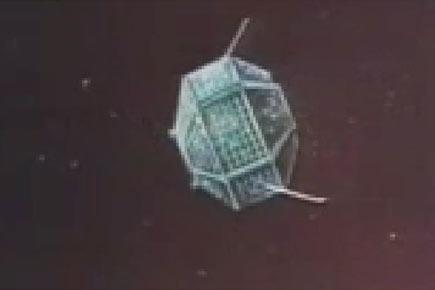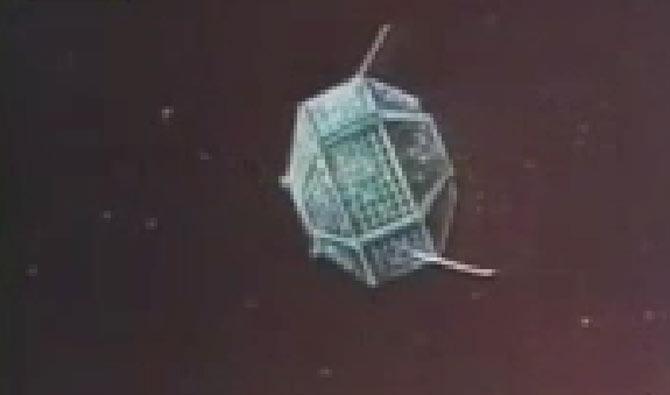On April 19, 1975, India entered the space age by launching their first-ever satellite, the Aryabhata...

On April 19, 1975, India entered the space age by launching their first-ever satellite, the Aryabhata...
ADVERTISEMENT
>> The Aryabhata was named after the 5th century astronomer and mathematician of the same name.
>> Built by the Indian Space Research Organisation (ISRO) to gain experience in building and operating a satellite in space, it was actually launched by the Soviet Union.

A still from the TV telecast of the Aryabhata launch. Pic/YouTube
>> The Aryabhata's image appeared on the reverse of Indian 2 rupee banknotes between 1976 and 1997.
>> The Aryabhata's launch came from an agreement between India and the Soviet Union directed by U.R. Rao and signed in 1972, which allowed the USSR to use India ports for tracking ships and launching vessels in return for launching India satellites.
>> The Aryabhata satellite reentered the Earth's atmosphere on 11 February 1992, 17 years after its launch.
>> The Aryabhata satellite was launched from Kapustin Yar rocket launch and development site using a Kosmos-3M launch vehicle.
>> After the launch, a power failure halted experiments onboard the Aryabhata after four days and 60 orbits with all signals from the spacecraft lost after five days of operation. According the Soviet media reports, the satellite continued to function and transmit information for some time.
>> The Aryabhata was built to conduct experiments in X-ray astronomy, aeronomics, and solar physics.
>> On it's launch, the Aryabhata's 96.46-minute orbit had an apogee of 611 kilometres (380 mi) and a perigee of 568 kilometres (353 mi), at an inclination of 50.6 degrees.
>> The Aryabhata was a 26-sided polyhedron 1.4 metres (4.6 ft) in diameter. All faces (except the top and bottom) were covered with solar cells.
 Subscribe today by clicking the link and stay updated with the latest news!" Click here!
Subscribe today by clicking the link and stay updated with the latest news!" Click here!











